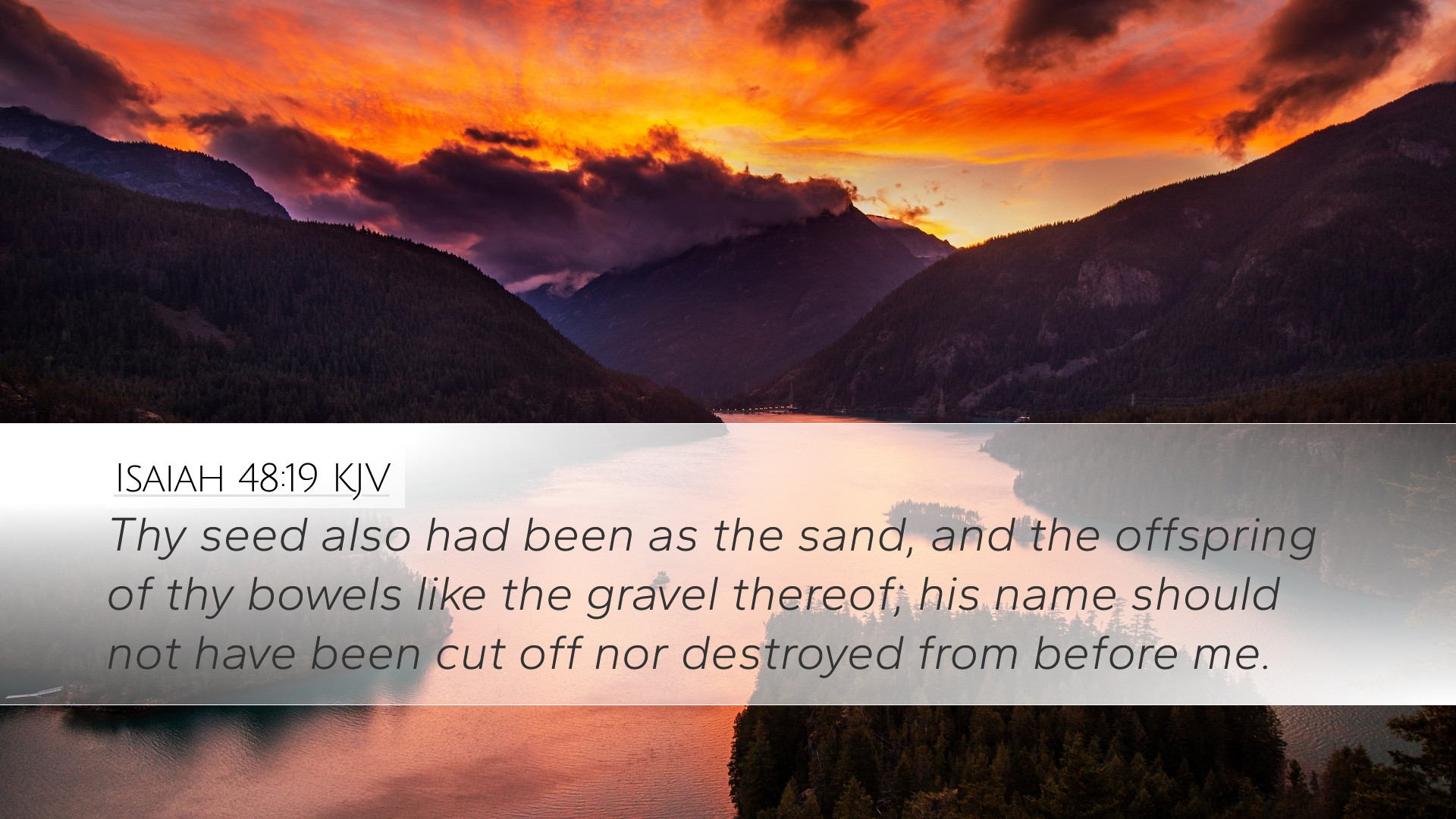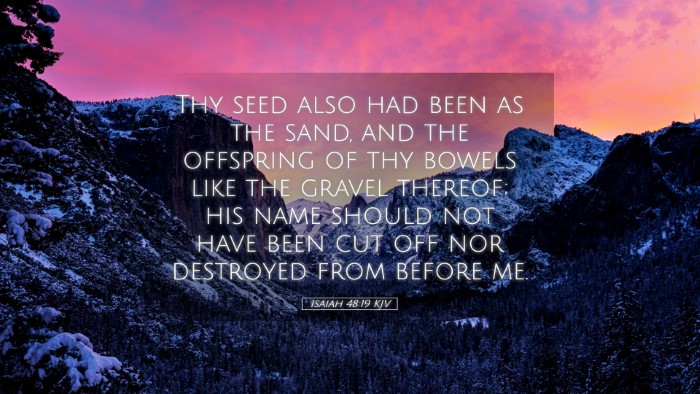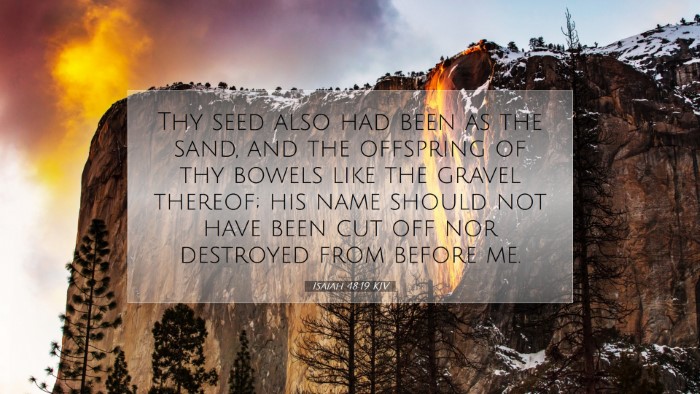Commentary on Isaiah 48:19
Verse: "And thy seed had been as the sand, the offspring of thy bowels like the gravel thereof; his name should not have been cut off nor destroyed from before me." (Isaiah 48:19)
Introduction
This verse from the book of Isaiah encapsulates profound theological concepts regarding lineage, divine promise, and God's everlasting covenant with His people. In the rich tradition of biblical commentary, it reflects upon the significance of the offspring of Israel and God's unwavering commitment to His promises.
The Significance of the Seed
Matthew Henry's Insights:
Matthew Henry emphasizes the immense value of the descendants of Israel, comparing them to ‘sand’ and ‘gravel,’ which denotes both multitude and permanence. He reflects on the notion that the offsprings, spiritually speaking, have a divine purpose that should not be diminished or eradicated. The language used illustrates both the natural and the miraculous lineage that should bear spiritual fruit.
Albert Barnes' Perspective:
Barnes articulates that the sand symbolizes the countless blessings and the significant role of Israel in God’s plan. He suggests that the imagery points towards the faithful remnant that God will preserve throughout history, signifying that while temporal issues may arise, God’s promises will manifest through His faithful followers.
Adam Clarke's Commentary:
Clarke emphasizes the covenantal nature of God’s promises and how this verse assures the faithfulness of God. He elaborates on the imagery of 'cut off' as a warning against failing to remain faithful to God. Clarke suggests that while many (like the Israelites) might stray, God will always retain a faithful remnant.
Covenant and Promise
In this verse, the ‘seed’ metaphorically represents the faith and stature of those who abide by the covenant. This starkly underlines God’s commitment to His Word. Those who abide in His promises are preserved for generations.
Theological Implications
- Divine Preservation: The mention of 'cut off' warns against the loss incurred when one forsakes God's mandates.
- Continuity of Promise: The reference to sand illustrates the ongoing and countless nature of God’s promises to Israel.
- The Remnant: The concept of a remnant signifies hope. Amidst judgment or disobedience, God always preserves a portion of His people.
Application for Pastors and Theologians
For pastors, this verse underscores the importance of nurturing the spiritual heritage of the congregation. It invokes the necessity of teaching about the promises of God and recognizing the faithfulness exhibited throughout Scripture. It serves as a warning that neglecting these teachings may result in getting 'cut off' from God’s blessings.
Theologians may explore this verse as a bridge to understanding the New Covenant, where Jesus expands the meaning of 'seed' to encompass not just Israel but all believers. The implications of this inclusion herald the truth that God’s faithfulness transcends generations.
Conclusion
Isaiah 48:19 stands as a potent reminder of God's promises and the significance of faithfulness. It serves as a call for introspection: Are we heirs of such promises? Are we living in obedience that enables us to witness the prevailing continuation of God's word through generations? Biblical commentaries highlight the dual nature of warning and promise in this text, making it a profound teaching tool for both individual believers and the church as a community.


